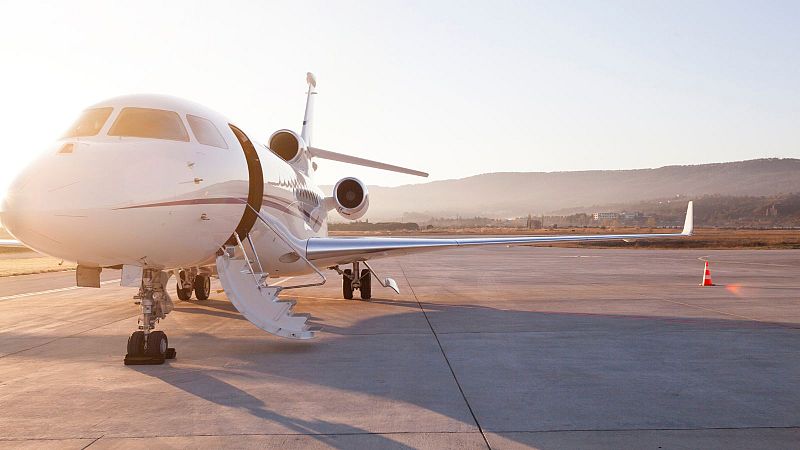Did people have to fly to COP29? Private jet use soared, but one group got to Baku overland

Private jets aren’t the best look for attendees of a conference designed to curb climate change, but once again they’ve proved a popular mode of travel to COP29.
According to data from plane tracking website FlightRadar24, 65 private jets landed in Baku in the week to Monday. Of those, 45 arrived on Sunday and Monday as the summit began.
That’s twice as many jets compared with the same week last year, when 32 private jets touched down at Baku international airport.
“For CEOs who claim to care about tackling the climate crisis, using a private jet to get to COP shows blatant hypocrisy,” Alethea Warrington, head of energy, aviation and heat at climate action charity Possible told the UK’s Times newspaper.
“Travelling by private jet is a horrendous waste of the world’s scarce remaining carbon budget, with each journey producing more emissions in a few hours than the average person around the world emits in an entire year.”
Some commentators point out there are valid reasons for world leaders, like UK PM Keir Starmer, to avoid commercial flights. But with private jets producing 10 times more carbon per passenger than commercial flights, it's a luxury the world can ill afford.
And it adds to the dubious atmosphere around the climate summit, held in the oil-rich state of Azerbaijan, where there are over 1,700 fossil fuel lobbyists in attendance.
How does COP29 private jet use compare to previous years?
Reversing the general trend of exponentially-growing climate COPs, COP29 is a smaller affair than last year’s summit in Dubai.
About 67,000 people have registered to attend this year’s conference, compared to the whopping 83,000 given passes to COP28.
There were 644 private flights linked to the Dubai COP, emitting around 4,800 tonnes of CO₂.
“The number of arrivals by private jet we are seeing at COP29 puts front and centre the hypocrisy of using a private jet while claiming to be fighting climate change, particularly from an equity point of view,” comments Denise Auclair of the Travel Smart Campaign, which aims to reduce corporate air travel.
“An executive taking one long-haul private flight will burn more CO₂ than several normal people do in an entire year.”
Do COP organisers ‘pander to the rich’?
Catering to an elite audience while maintaining credibility has proved to be a tricky balance for COP organisers to strike.
At COP26 in 2021, UK organisers were accused by climate activists of “pandering to the rich” by including two exclusive private jet airports in a travel guide for overseas delegates.
An estimated 60 per cent of the greenhouse gas emissions from COP26 were attributed to international travel. To highlight the impact, researchers from University College London (UCL) have created a tool enabling people to calculate the carbon footprint of travel to Baku.
With the land border between Georgia and Azerbaijan closed, it has proved virtually impossible to travel to the summit without taking a flight.
But a trio of UK-based corporate sustainability advisers have managed to lead by example, by embarking on a two-week overland odyssey to get there, involving 15 trains and three buses.
Saturday, november 23, 2024

